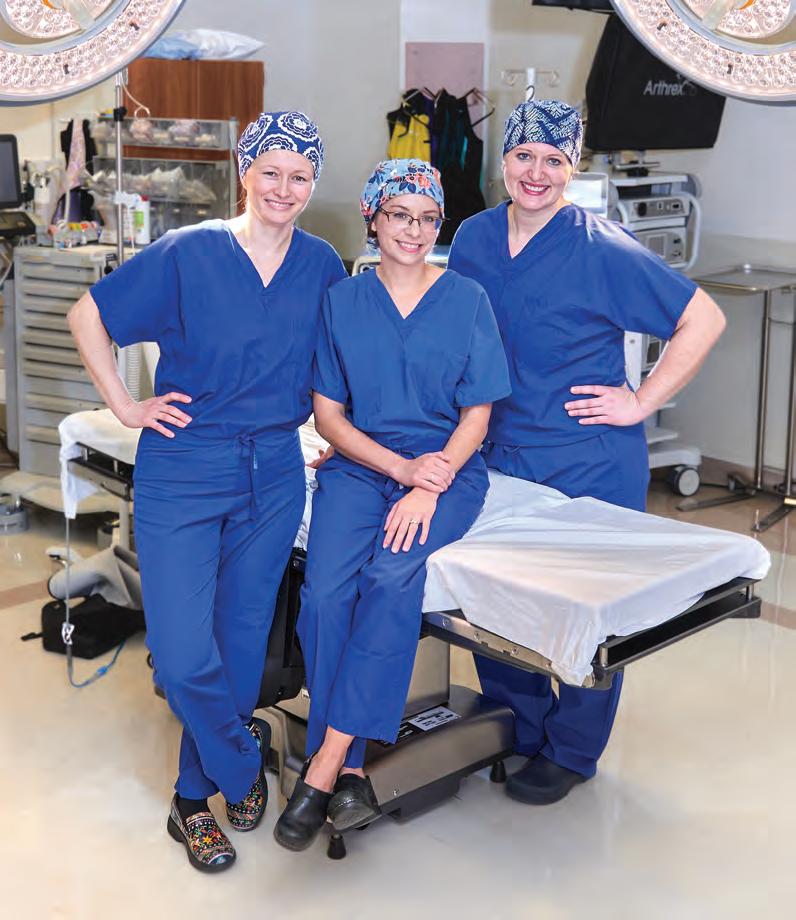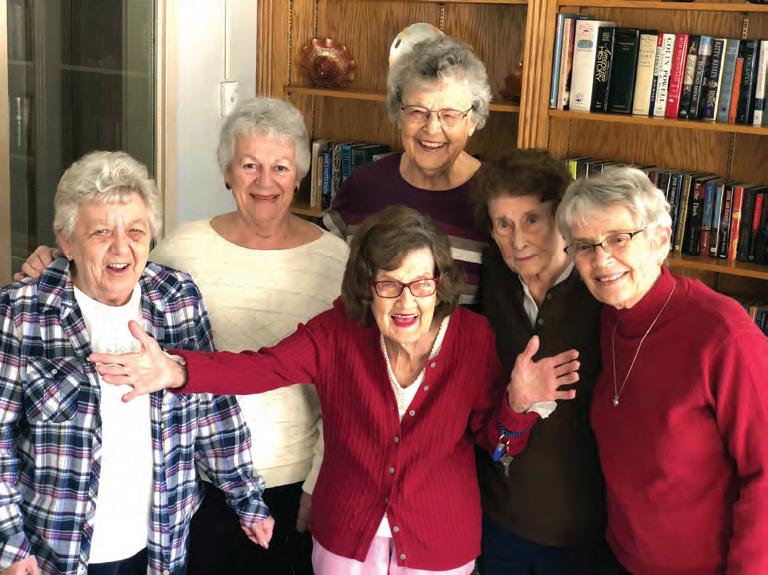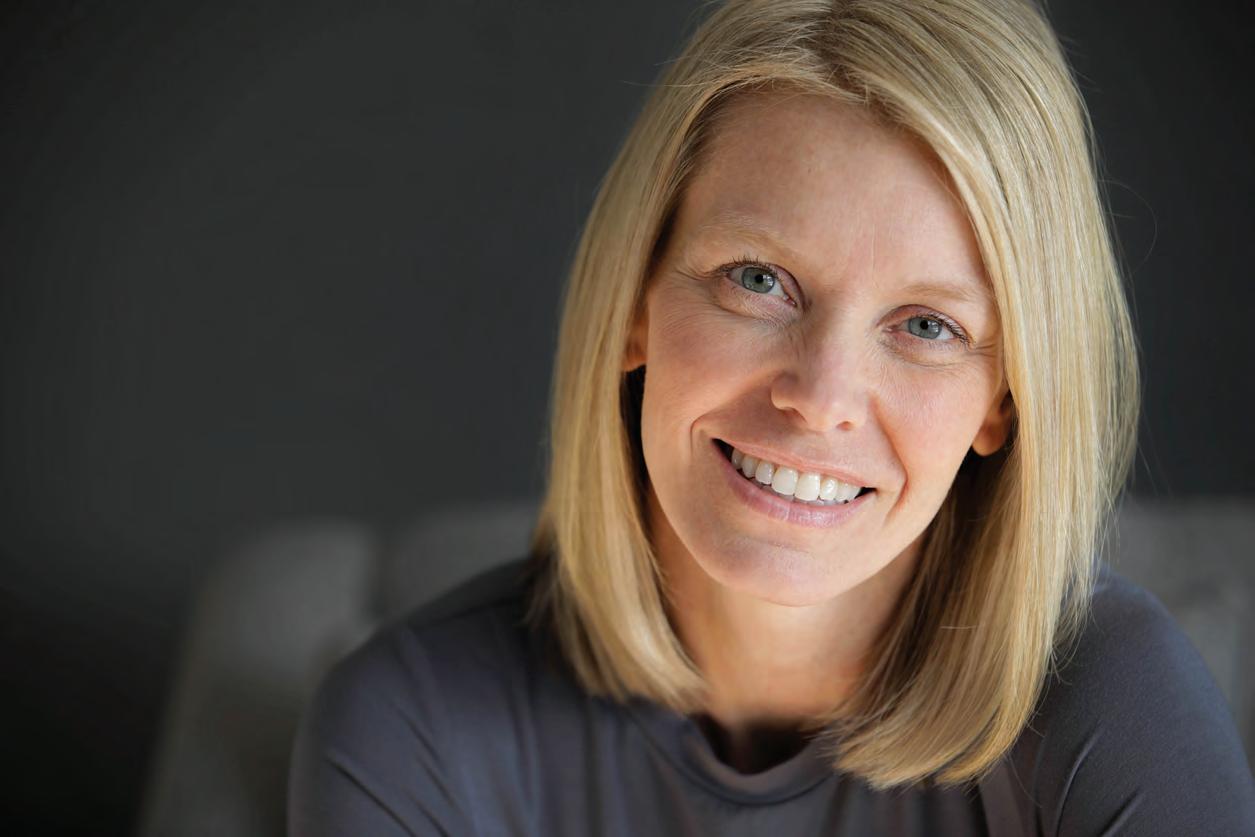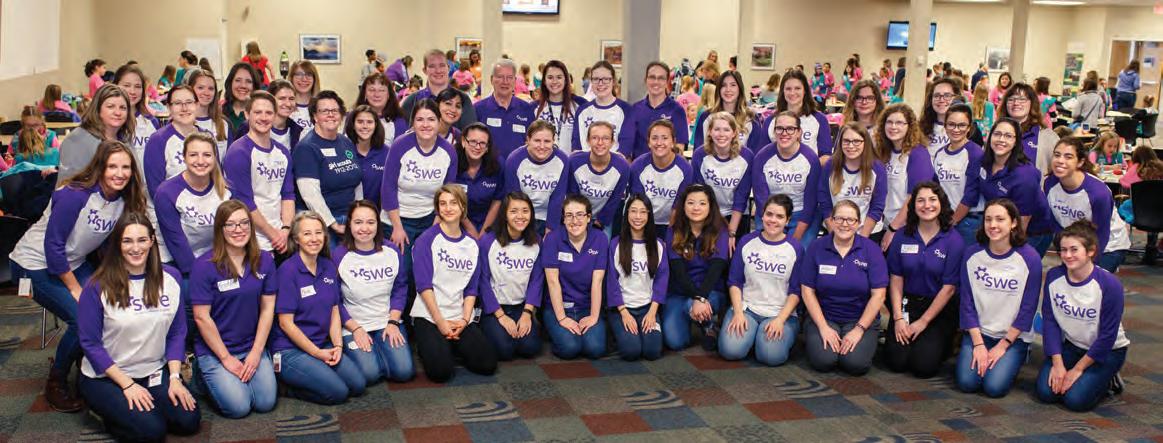
5 minute read
Moms, Wives, and Surgeons
Dr. Katya Ericson, Dr. Ashley Marek, Dr. Ellie Cohen.
Most of us spend our childhoods dreaming of what we will be “when we grow up.” For some, that dream is brought into focus by an event in our lives. “I grew up in Gomel, Belarus, about 100 miles from Chernobyl,” Katya Ericson, M.D., said. “I was in elementary school when the Chernobyl nuclear accident happened, and I think in some way that influenced my desire to be a doctor.”
For others, people that cross our paths help direct us. “I started out in journalism and during my internship at a newspaper, I had an assignment where I had to interview a volunteer By Lisa Cownie
each week. Many of the volunteers worked in healthcare and I was inspired by what a difference they made in the community. After interviewing two surgeons, I was inspired to go to medical school,” Ashley Marek, MD, FACS, said. For Dr. Ericson and Dr. Marek, the path to medicine – surgery in particular - seemed clear but it was not without its obstacles. In addition to the rigorous demands of obtaining a medical degree, they also faced challenges in a profession traditionally dominated by men. Drs. Ericson and Marek, along with Ellie Cohen, M.D., are all surgeons at Northfield Hospital + Clinics (NH+C). “Women are sorely underrepresented in this field,” Ellie Cohen, M.D., said. “Because of this, it can be hard to find mentors.” Mentors, in the field of surgery, can be crucial for women to help them balance the other thing they want to be when they grow up - a mom.
“My first daughter was born during the week of my orientation during the first year of surgery residency. After taking 5 weeks of maternity leave, I came back to work and had to catch up fast with my fellow classmates who were learning the ropes when I was learning how to be a new mom,” Dr. Ericson said. “Once I went back to work, my daughter stopped breastfeeding even though I had milk. I think she was protesting. I pumped for almost a year, but it was challenging. Most of the time it was once or twice in a 24-hour shift when I couldn’t take the pain any longer. “I was in my third year of residency when I was pregnant with my second child. I tried to hide my pregnancy for as long as I could because I didn’t want my colleagues to think I needed special treatment. I wanted to be treated as a surgeon,” she said. “With my second child, I also took only 5 weeks of maternity leave because of the restrictions from the American College of Surgeons. Surgeons who take too much time off during their residency are not able to sit for boards and become board-certified. I did manage to breastfeed and pump with my second child for almost a year, too, but I cringe when I think about it because a lot of it was done in hospital bathrooms between surgeries.” Dr . Cohen had similar challenges early in her career.
“Being a woman, it’ s often hard to find a work-life balance. During residency (surgical training), work weeks are often 80 hours and shifts can last up to 24 hours. If we do try and have a family during this time, many of us only get four weeks of maternity leave. Because of this, it can feel like a tug of war between your home and professional life,” she said. “But I do think this is changing. In my residency class, four out of five of us were women, and three of us were raising children – and gave birth during residency. It was a challenge, and often we were at work when we would rather be home, but we had the support of each other (as well as amazingly supportive families).” Indeed, the tide may be turning but, despite ongoing efforts by medical school and professional organizations, the number of women entering medicine - and surgery in particular - remains low. According to the Assocation of Women Surgeons, only about 19% of all surgeons in the United States are women and fewer than 10% of full professors of surgery are women. “At times, I have found myself doing mor e tasks such as organizing and planning that the men I worked with didn’t have to do,” Dr. Marek said. “When I would point out this discrepancy, I was told that it was because I was the most organized and therefore better at it. However, this is a well-studied entity called ‘institutional housekeeping.’ Just as women tend to do more tasks around the home than men, so ment. It fits my personality well,” Dr. Ericson, who is happy to see the tide finally turning, said. “Today the number of women choosing surgery is growing. My residency program has more women residents than
Dr. Katya Ericson, Dr. Ellie Cohen, Dr. Ashley Marek.

they also do at work.“
The lopsided numbers, and the chal lenges that came with it, didn’t stop these three women. It’s interesting how all of them, from three different places and three very different backgrounds, landed in the same spot – NH+C – in the same specialty: surgery.
“My decision to become a sur geon solidified during my medical school clerkships. Surgery is a fast-paced and ‘think on your feet’ field where your actions can really save a life. A surgeon’s day is always different and requires constant learning and improvemen, which is amazing. Things are headed in a positive direction.” All these women agree that gender isn’t what matters; heart is.
“I chose this field to help people, and it is the best part of my job,” Dr. Cohen said. “Having people go into surgery with a problem and leave the operating room better is such a rewarding feeling. I consider it a privilege that people and their family members put their trust in me, and I strive to give them the best care.”








